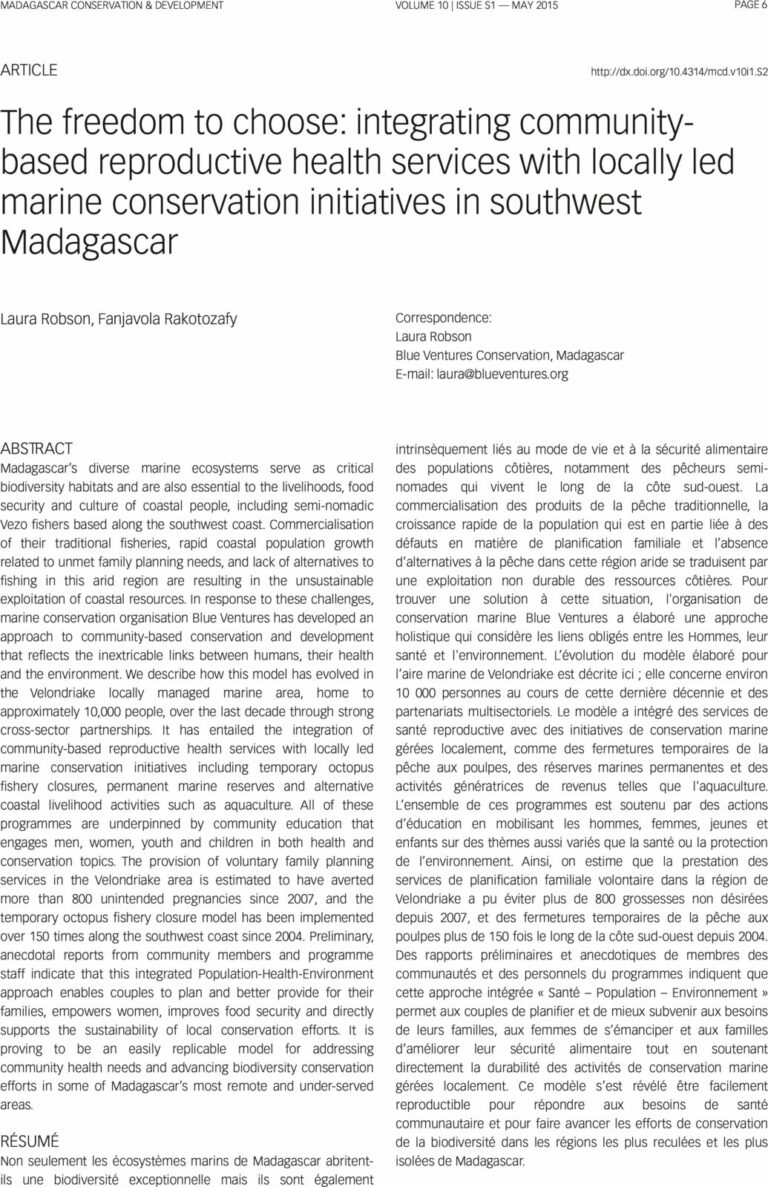Abstract
Madagascar’s diverse marine ecosystems serve as critical biodiversity habitats and are also essential to the livelihoods, food security and culture of coastal people, including semi-nomadic Vezo fishers based along the southwest coast. Commercialisation of their traditional fisheries, rapid coastal population growth related to unmet family planning needs, and lack of alternatives to fishing in this arid region are resulting in the unsustainable exploitation of coastal resources. In response to these challenges, marine conservation organisation Blue Ventures has developed an approach to community-based conservation and development that reflects the inextricable links between humans, their health and the environment. We describe how this model has evolved in the Velondriake locally managed marine area, home to approximately 10,000 people, over the last decade through strong cross-sector partnerships. It has entailed the integration of community-based reproductive health services with locally led marine conservation initiatives including temporary octopus fishery closures, permanent marine reserves and alternative coastal livelihood activities such as aquaculture. All of these programmes are underpinned by community education that engages men, women, youth and children in both health and conservation topics. The provision of voluntary family planning services in the Velondriake area is estimated to have averted more than 800 unintended pregnancies since 2007, and the temporary octopus fishery closure model has been implemented over 150 times along the southwest coast since 2004. Preliminary, anecdotal reports from community members and programme staff indicate that this integrated Population-Health-Environment approach enables couples to plan and better provide for their families, empowers women, improves food security and directly supports the sustainability of local conservation efforts. It is proving to be an easily replicable model for addressing community health needs and advancing biodiversity conservation efforts in some of Madagascar’s most remote and under-served areas.

















